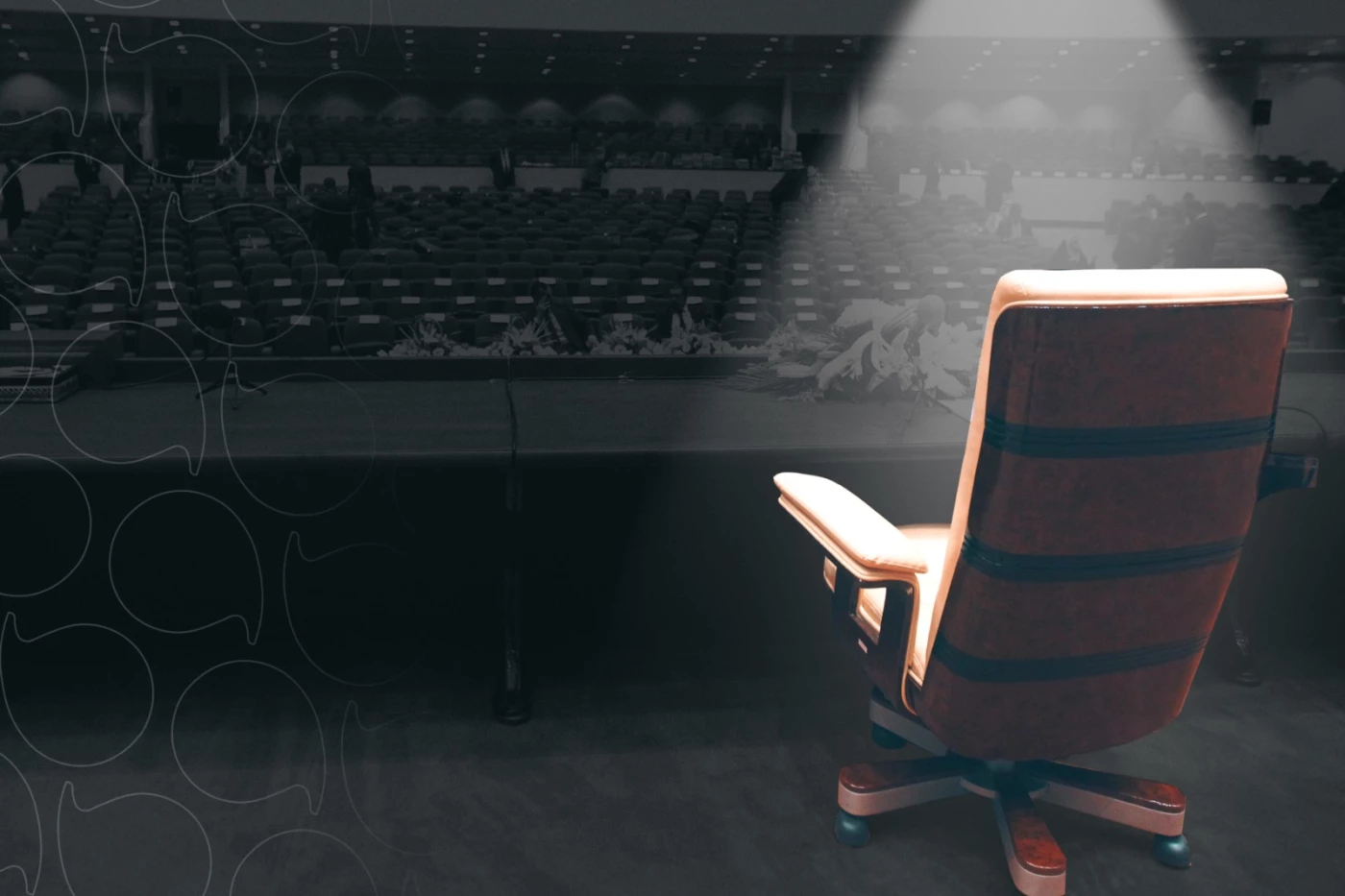ERBIL, Kurdistan Region of Iraq - Sunni lawmakers and officials decry that the process of appointing the next Iraqi parliament speaker - a position allocated for the Sunni component - has been stained by the ruling Shiite Coordination Framework imposing its will on who should fill the position, which has now been vacant for nearly a year.
The Coordination Framework, the largest bloc in the Iraqi legislature, in a meeting on Monday called for a parliament session to be held next Saturday to bring an end to the deadlock and decide on the speaker position. The meeting was attended by several key leaders of the bloc, most notably Iraqi Prime Minister Mohammed Shia’ al-Sudani and State of Law Coalition leader Nouri al-Maliki.
The item has yet to be added to the parliament’s agenda.
The bloc had previously called for the post to be settled in a parliamentary session on Tuesday. The session was never held.
Three Sunni politicians are in consideration for the highly-coveted position: Veteran politician Mahmoud al-Mashhadani (Azm Alliance), MP Talal al-Zobaie (Azm Alliance), and MP Salem al-Issawi (the Sovereignty bloc).
Shaalan al-Karim, an MP of the Sunni Taqadum Alliance, claimed that the Coordination Framework has reached an agreement with other political powers to appoint Mashhadani as speaker.
The agreement on Mashhadani “means imposing the will of one component on another component and the latter surrendering to its will,” according to Karim, who was in the running for the speakership but withdrew from the race in April after facing opposition from the Shiite blocs.
“Mahmoud al-Mashhadani is not the choice of the Sunni component, but rather the choice of Nouri al-Maliki and the Coordination Framework,” Karim told The New Region on Saturday, adding that this could set a dangerous precedent in the Iraqi political scene where the largest component chooses what the other components want without consulting with their true representatives.
“After a year, it has become clear to us that Nouri al-Maliki is the one running the political process in Iraq, and he is the one obstructing the selection of a figure that the Sunni component wants to be the speaker of parliament,” he added.
Al-Hamza al-Sarheed, Taqadum official, claimed that Issawi’s candidacy is to create conflict within the Sunni camp, noting that the Coordination Framework’s call must be in line with that of the majority of the Sunni parties.
“Voting for Mashhadani is contingent on Issawi’s withdrawal… The majority of the Sunnis will not attend if Issawi does not withdraw,” stressed Sarheed.
A coalition comprised of 55 lawmakers has been formed in recent months to oppose Mashhadani’s apparent appointment as speaker, and have endorsed Issawi for the position.
During a discussion on an Iraqi television show, Azm MP Ahmed al-Jabouri said that they support the Coordination Framework’s move toward settling the speakership, acknowledging that the Shiite bloc is “the main decision-maker.”
“The Framework did not consult the Sunni forces regarding the decision to determine the parliamentary speakership… No Sunni party will be able to prevent the Framework’s decision,” said the Sunni lawmaker.
“The Sunnis and the Kurds cannot bring their candidates to the positions without the Shiite approval,” he noted, adding that the position will be settled during the parliamentary session even if the 55 MPs boycott.
Jabouri in September said that Muthanna al-Samarrai, head of Azm Alliance, backs Mashhadani for the speakership, but claimed that “there is a fear within the Coordination Framework that the MPs will elect Issawi if he does not withdraw.”
Alaa al-Haddadi, a senior State of Law official, said during an interview with an Iraqi channel that Issawi’s withdrawal would not be in the interest of the Sunnis, adding that the Coordination Framework will have a unified stance on one of the candidates.
He stressed that “Saturday's session will not decide the position, but it will clarify the voting paths.”
In addition to the Shiite imposition, Sunni strongman and former Speaker Mohammed al-Halbousi has reportedly also made efforts in recent weeks to implicate some of his Sunni rivals in the Accountability and Justice Act, which governs the practice of de-Baathification, in order to disqualify them from political and electoral competitions in the future, according to a source who spoke to The New Region on condition of anonymity.
“He fears losing his political influence, especially after he lost the post of parliament speaker,” the source added.
Jabouri also accused Halbousi, who heads Taqadum, of hindering the speaker appointment over the past year, stating that “80 percent of the delay in setting a parliament speaker is due to Halbousi.”
Iraq’s Federal Supreme Court in November 2023 revoked the parliamentary membership of Halbousi and ousted him from the post of speaker. Muhsin al-Mandalawi, Halbousi’s deputy, has been filling the position as acting speaker since.
Several sessions have been held to vote on a new speaker but to no avail as none of the nominees were able to garner enough support from the lawmakers.
A sectarian power-sharing arrangement has governed Iraqi politics since the fall of Saddam Hussein’s regime, under which the post of prime minister is reserved for the Shiite component, the presidency is allocated for the Kurds, and the Sunnis get the speaker of parliament.



 Facebook
Facebook
 LinkedIn
LinkedIn
 Telegram
Telegram
 X
X


